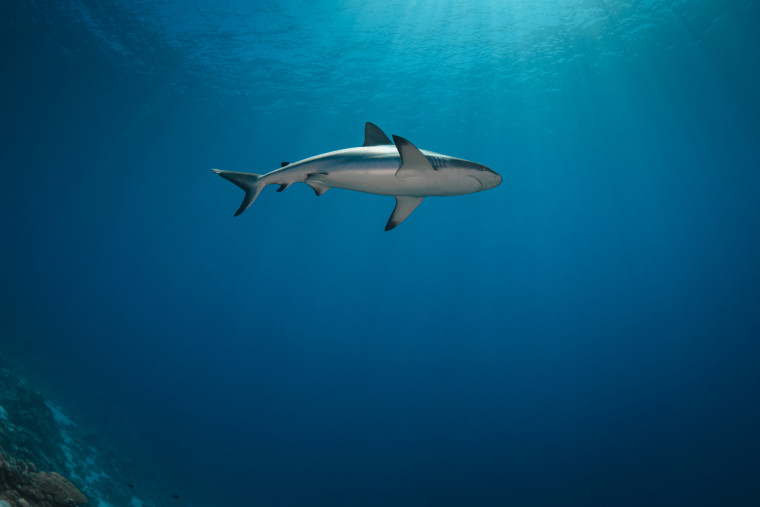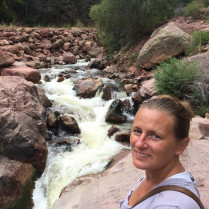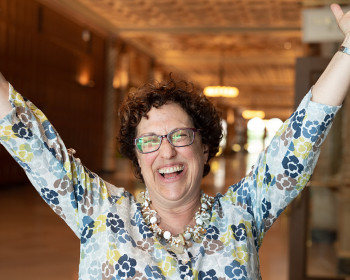The Myth of Sustainability in Fisheries and Aquaculture
Open gallery

The third annual World Aquatic Animal Day, a project of the Aquatic Animal Law Initiative and the Animal Law Clinic at the Center for Animal Law Studies at Lewis & Clark Law School, will take place on April 3, 2022. This annual event raises global awareness about aquatic animals while celebrating these often-forgotten nonhuman animals and calling for action to protect aquatic animals through education, law, policy, advocacy, and outreach. The theme for 2022 is Disentangling the Sustainability Myth in Fishing and Aquaculture to align with the United Nations General Assembly’s International Year of Artisanal Fisheries and Aquaculture. Fisheries refers to aquatic animals including fish and other species taken for human use.
Aquatic animals encompass all animals who live in or depend upon marine and freshwater environments. Aquatic animals include fish, amphibians, echinoderms, mollusks (cephalopods), crustaceans, reptiles, marine mammals (cetaceans and pinnipeds), cnidaria (corals), porifera (sponges), aquatic birds, and aquatic insects and spiders. Aquatic environments are home to countless species, many of whom are consumed by humans as food or harvested for economic reasons. For thousands of years, humans have taken these animals to feed their families and local communities. But increasing demand for seafood and technological advancements have fostered fishing practices that are depleting fish and shellfish populations around the world. As the global human population approaches nine billion, it is increasingly important to find ways to “[c]onserve and sustainably use the oceans, seas and marine resources”—one of the United Nations 17 Sustainable Development Goals (SDGs). Sustainable management, conservation, and restoration of aquatic ecosystems are vital for the survival of aquatic animals and our water systems. But what exactly does it mean to be sustainable?
The term sustainable has lost its meaning over the years. Indeed, the definition of sustainability has become so diluted and misunderstood that the term itself is becoming unsustainable. In 1987, the United Nations Brundtland Commission defined sustainability as “meeting the needs of the present without compromising the ability of future generations to meet their own needs.” Similarly, the Marine Stewardship Council defines sustainable fishing as “leaving enough fish in the ocean and protecting habitats and threatened species” to ensure that “people who depend on fishing can maintain their livelihoods.” The common theme embedded in these definitions is allowing the use of a resource just short of the amount that would cause potential extinction, in order to guarantee that humans can continue to exploit those species into the foreseeable future. But what does this mean for aquatic animals? These antiquated definitions fail to explain at what point sustainable becomes unsustainable and leave open the vital question of how to determine when “enough” is enough for the animals. And they wholly fail to consider the welfare and needs of the animals in question, or the complex and critical relationships they have with their ecosystems.
According to the United Nations Food and Agriculture Organizations (FAO), global fish production in 2018 reached about 179 million tons, of which 82 million tons came from aquaculture production. Based on the FAO’s assessment, the fraction of fish stocks that are within biologically sustainable levels decreased from 90% in 1974 to 65.8% in 2017. In contrast, the percentage of stocks fished at biologically unsustainable levels, or classified as overfished, increased from 10% in 1974 to 34.2% in 2017. What will happen if the world continues to exploit marine and freshwater ecosystems at this pace? If we rethink sustainability and take immediate steps to better protect aquatic species and ecosystems at risk, could we turn this around?
World Aquatic Animal Day 2022 addresses this question and takes a closer look at the myth of sustainability in fishing and aquaculture. The day includes a free, virtual webinar with panels on a myriad of issues concerning the myth of sustainability in fisheries and aquaculture including unsustainable practices, insufficient corporate accountability, methods of advocacy, and pathways to a sustainable future with the ultimate goal of redefining sustainability and providing alternatives to the use of these animals and the harm to their ecosystems. Speakers will discuss new ways to think about sustainability that will encompass the need to take stronger action for aquatic animals around the world. Additionally, World Aquatic Animal Day will provide opportunities for participants to get involved and advocate for aquatic animals while learning about some of the newest alternative seafood products on the market. Join us on April 3, 2022 and help us look for new, innovative ways to redefine sustainability. Visit the event page to learn more and register!


The Center for Animal Law Studies (CALS) was founded in 2008 with a mission to educate the next generation of animal law attorneys and advance animal protection through the law. With vision and bold risk-taking, CALS has since developed into a world-renowned animal law epicenter, with the most comprehensive animal law curriculum offered anywhere. In addition, CALS is the only program that offers an advanced legal degree in animal law, now offered both in-person and online, and three specialty animal law clinics. CALS is a nonprofit organization and is only able to provide these educational opportunities through donations and grants.
More Center for Animal Law Studies Stories
Center for Animal Law Studies is located in Wood Hall on the Law Campus.
MSC: 51
email cals@lclark.edu
voice 503-768-6960
Center for Animal Law Studies
Lewis & Clark Law School
10101 S. Terwilliger Boulevard MSC 51
Portland OR 97219

